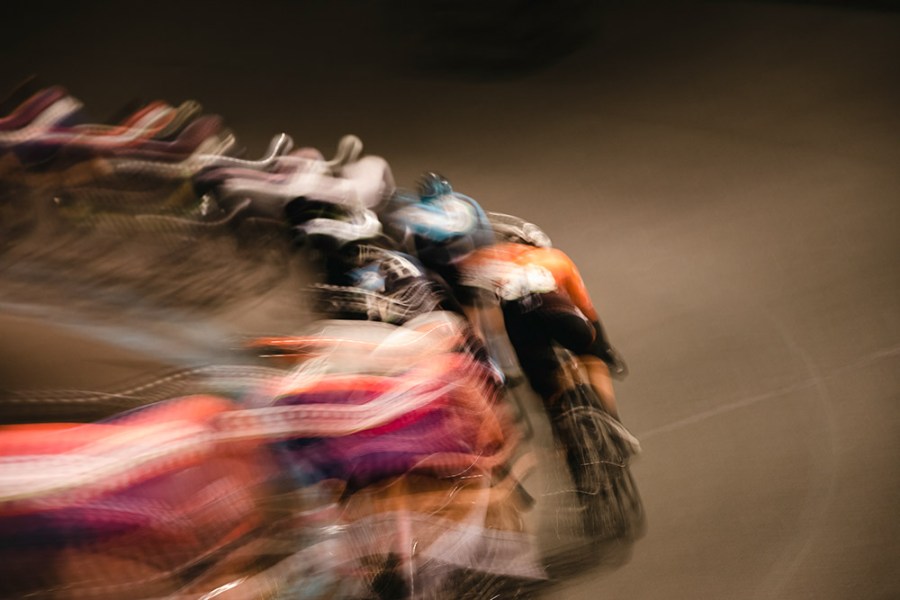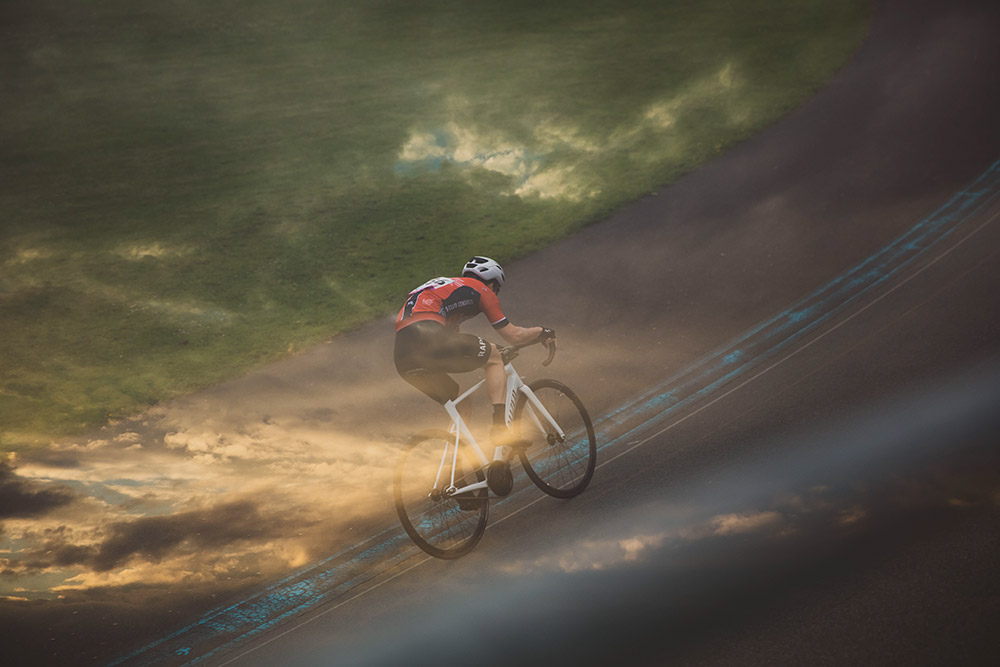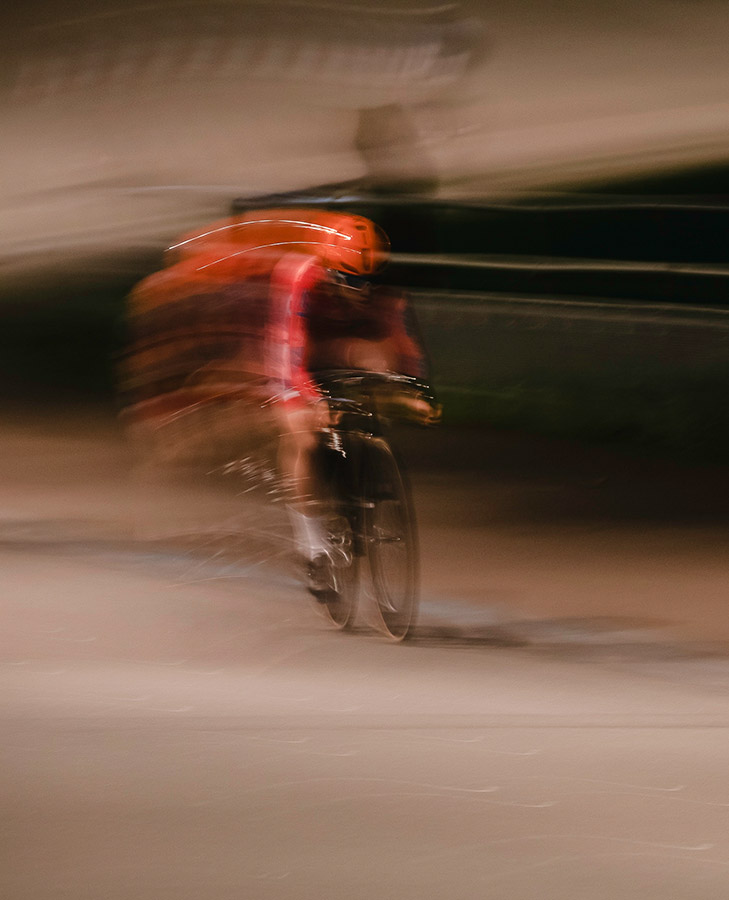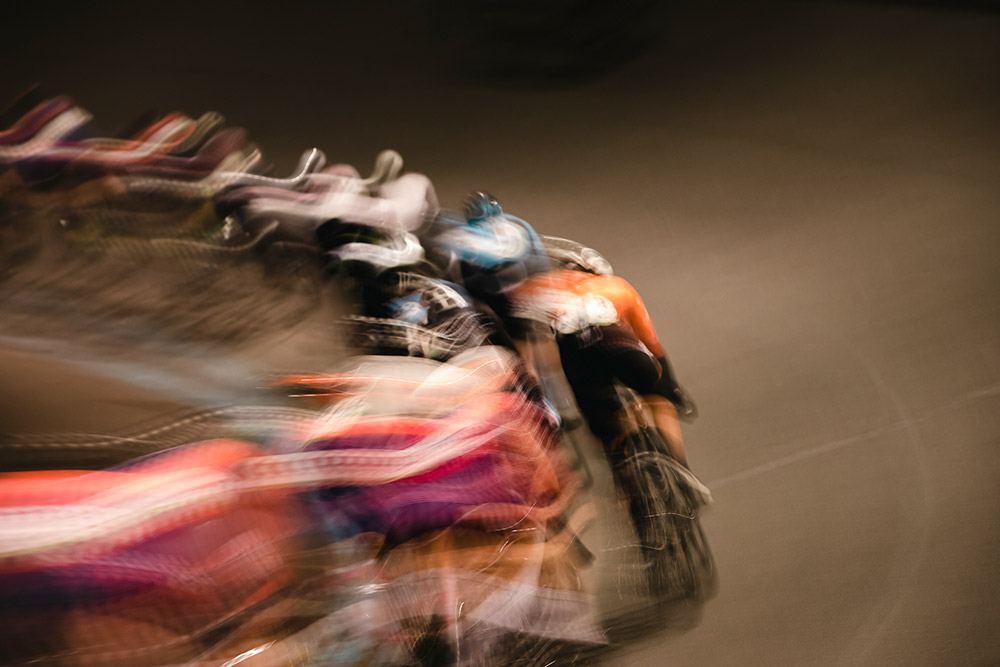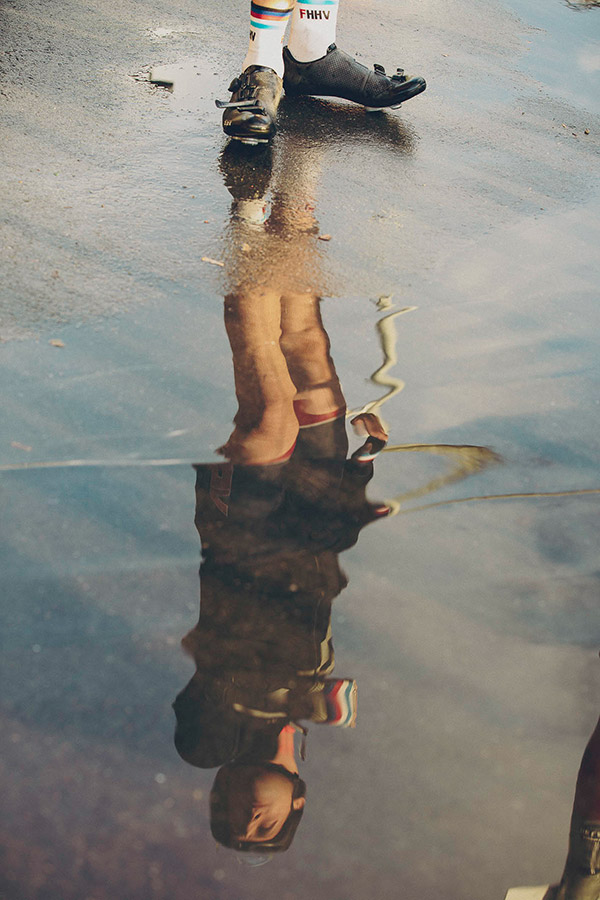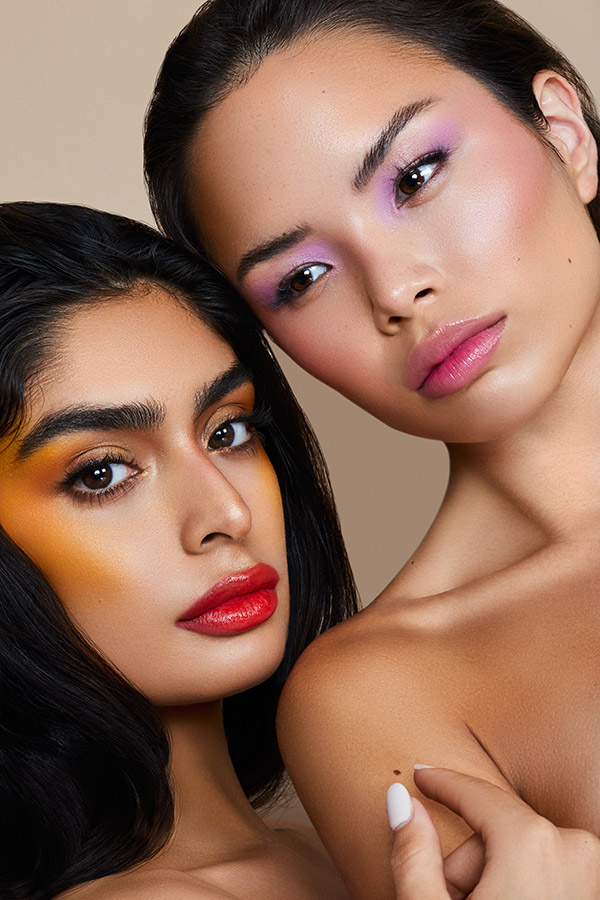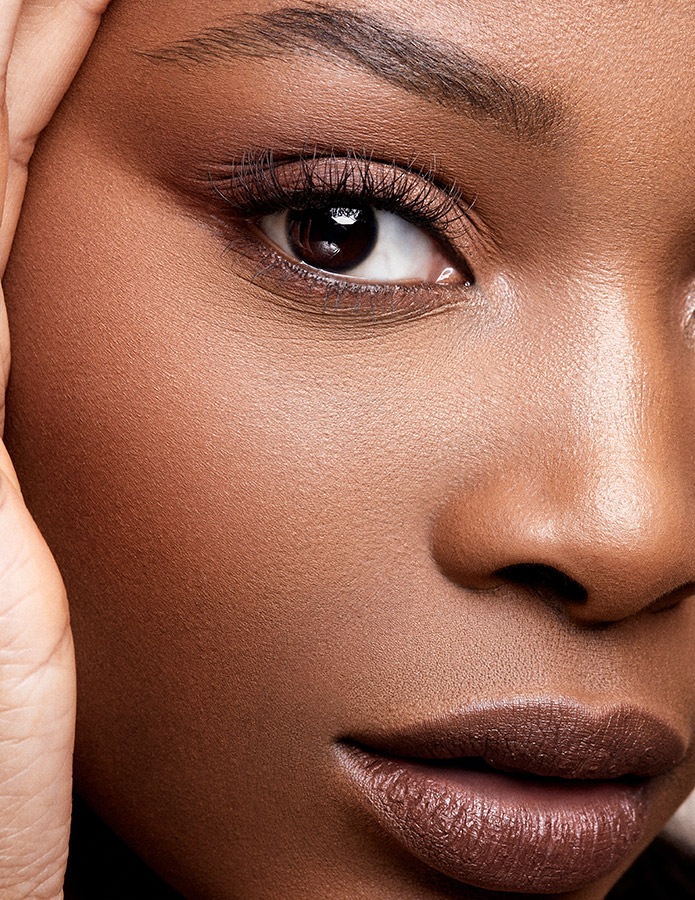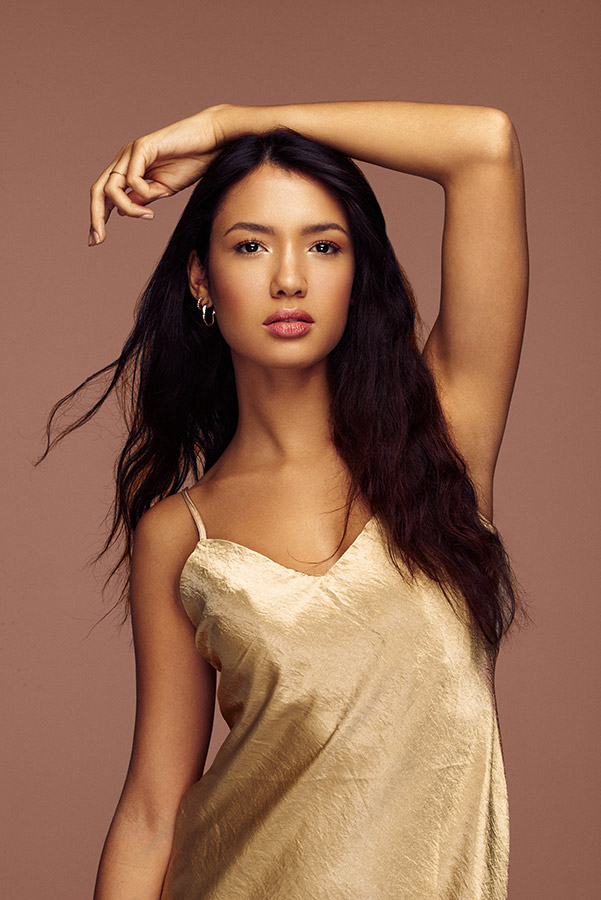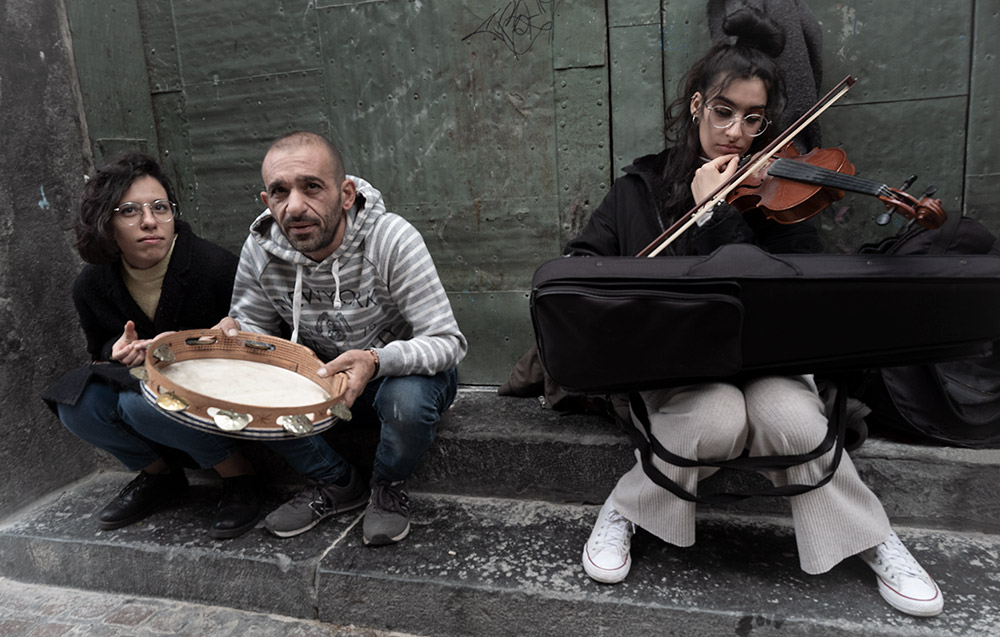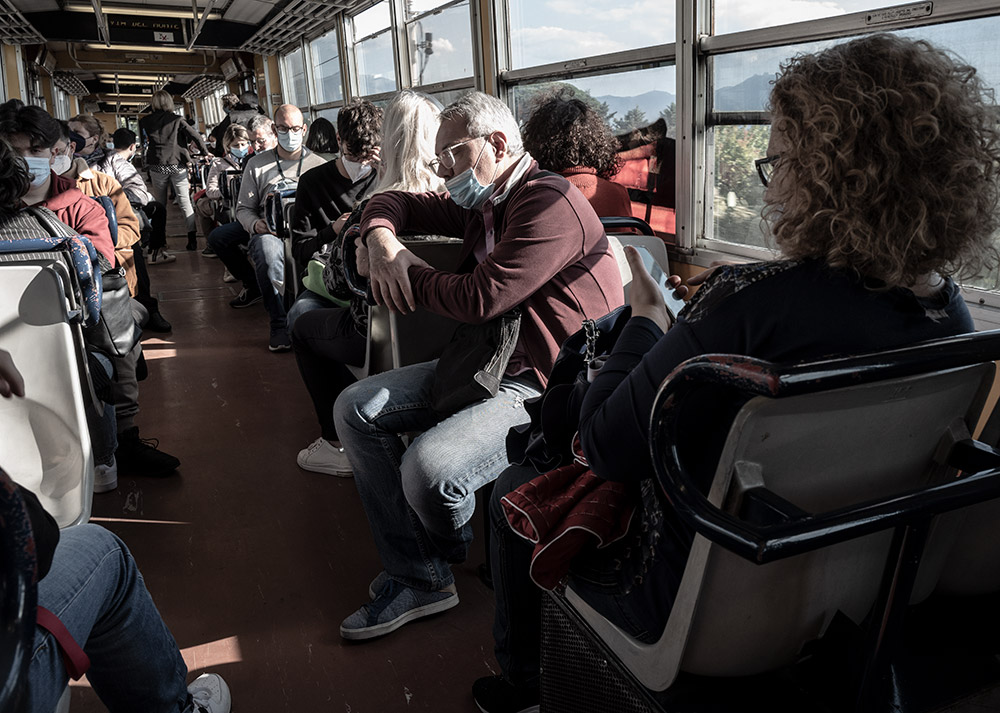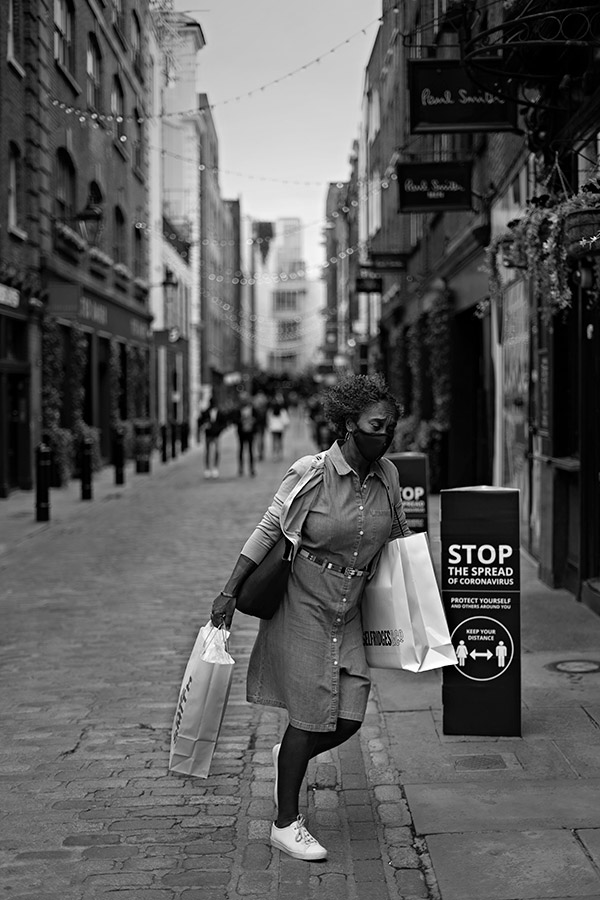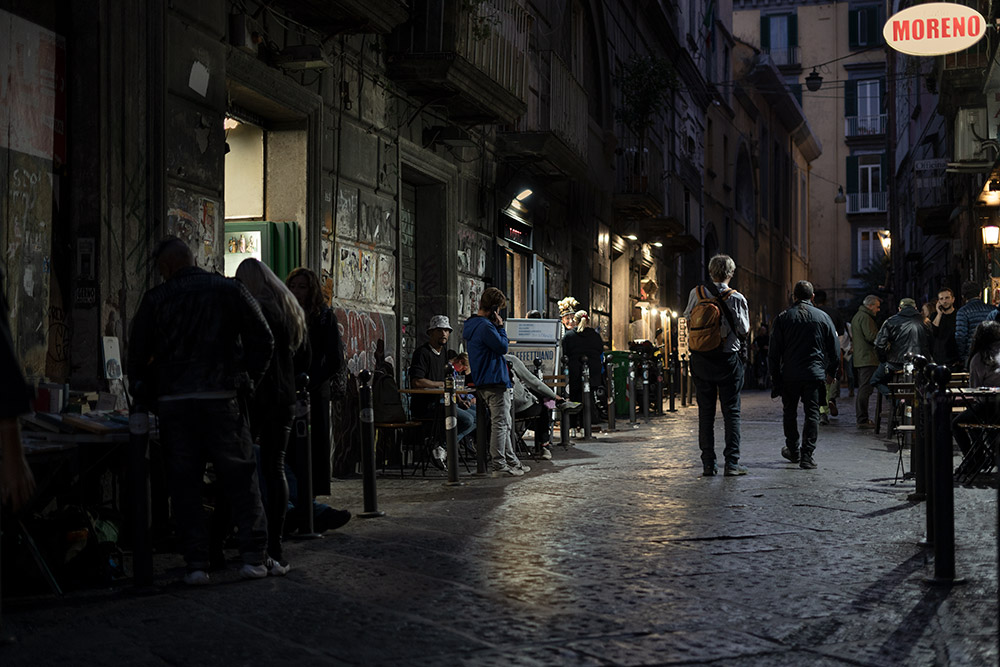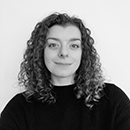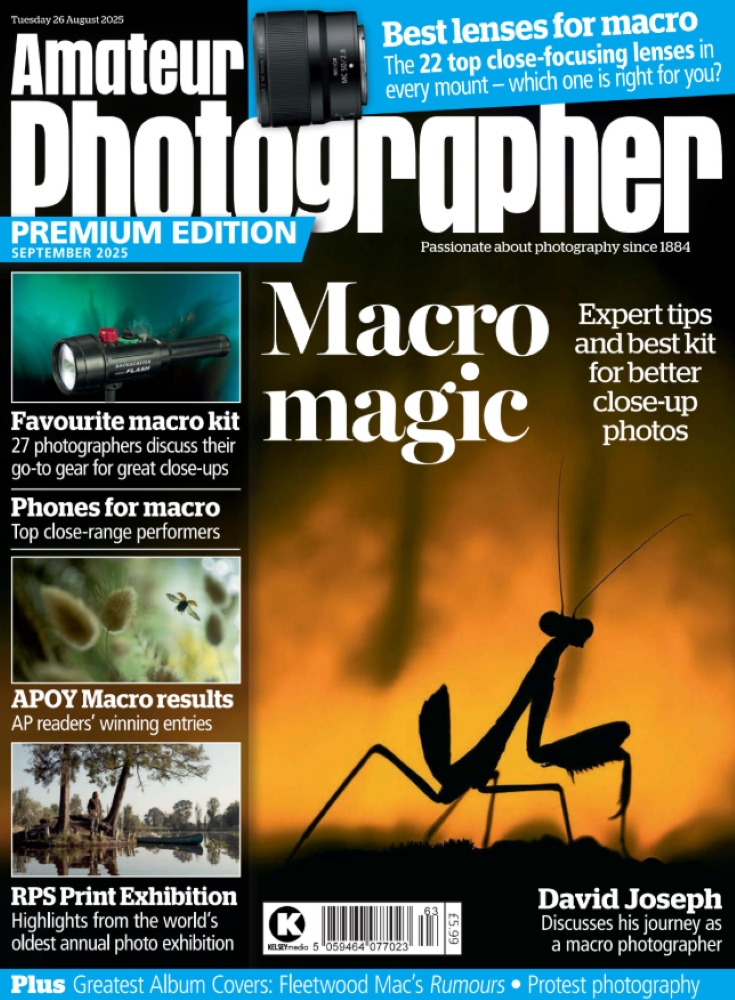Jessica Miller visits the exhibition by 2020-22 graduates from the Professional Photography course at London Institute of Photography (LIoP). Below, they share their work, what they have learnt from the course and advice for those looking to get into photography.
Alessandra Bucci – The Beauty of the Movement
Photos taken with Canon EOS 5D Mark IV. Lenses: 24-70mm for the portrait of the cyclist reflected in the puddle and 70-200mm for the others. All photos taken without tripod, camera on Manual Mode, slow shutter speed (around 1/13s or slower) for the blurred ones.
Can you tell me about yourself and how you got into photography?
I was born and raised in Milan, Italy. I started my career as a graphic designer in the fashion capital.
But it’s after I moved to England in 2014 that my passion for photography started to grow exponentially, culminating in the decision of embarking on a professional photography course and graduating from the London Institute of Photography in July 2020.
I started shooting sports photography last year when I had the chance to go to Herne Hill Velodrome in London and they asked me for some photos to promote their sessions. I chose cycling because it’s always been part of my life, but from an amateur point of view, I have never done any races.
During my studies with LIoP I fell in love with Street Photography and the surrealists. Before Covid happened I usually went down to Central London once a week to shoot street photos, which helped me develop my technique. So when I had the opportunity, it came very natural for me to switch from street to sports, finding some similarities between the two of them, like catching the moment and being creative at the same time.
Both my father, who was an amateur portrait photographer, and my granddad, who was a painter, I think influenced my style unconsciously.
Can you tell me more about your project?
The photos within my project were taken between April 2021 to January 2022 at Herne Hill Velodrome. I wanted to show the beauty of the sport and in particular the beauty of the circular movement cycling in a velodrome creates, where the speed of the cyclists was like a visual translation of the wind and in the name of a visual ideology based on a single principle: the dynamism of the athletes who gave the community a sense of freedom after months of lockdown and restrictions we all went through over the past 2 years.
I was influenced by some Futurism and Surrealism exhibitions I visited during 2021, especially one in Milan where I had the chance to see some masterpieces by Umberto Boccioni.
I have also started photographing other sports like running and swimming, but just recently which I hope to continue doing in the future.
How did you choose which photographs would be included in your show?
My goal was to show the grace, the enthusiasm and the beauty of the movement the athletes showed in front of the camera, which opened up a space that created a new dimension for the eyes.
What are your future plans?
I hope to continue working on my personal projects and to further expand my commissioned bodies of work. I would love to begin shooting international competitions and events as well as widening my portfolio to include a further variety of sports. I hope to continue developing my style and technique to capture the essence of my subjects and to one day become a recognised name in the world of sports photography!
Do you have any advice for others wanting to get into or study photography?
- Be curious.
- Bring a camera with you, everywhere you go.
- Shoot, Shoot, Shoot. Be interested not in shooting new things but to see things new.
- If you want to be a Sports Photographer, always be aware of the rules of the game and pay attention to what is going on around you. If you have the chance, talk to the commissaires before a race starts, they will genuinely help you find the best spots where to take photos.
I highly recommend the London Institute of Photography School if you are looking for photography classes taught by real photographers. Every day I learnt so much but most importantly I always felt very inspired to continue practising.
Hannah Schwen
Canon EOS 5D Mark IV, Sigma 105mm macro lens, Profoto D2 + large octabox.
Can you tell me about yourself and how you got into photography?
I am a beauty photographer and retoucher who currently resides in London, UK. I was born and raised in beautiful Austria and therefore have had an avid interest in the arts from an early age. I developed an interest in photography a few years back when I purchased my first DSLR camera. This interest quickly turned into this strong passion and it became my mission to make every subject I photograph feel beautiful, confident and sophisticated.
Can you tell me more about your work?
I specialise in beauty photography therefore my work mostly captures faces, makeup, skin, eyes and lips. I am inspired by natural beauty and like to let that shine through my work. Natural skin texture and harmonious colours are what I love most. I also aim to capture not only my models’ beauty but also their unique character. All of my work is shot in a studio mostly using one big light source. I then colour grade my images using CaptureOne and retouch using Adobe Photoshop.
How did you select the photographs for your show?
For the show I wanted to showcase my journey so I selected some of my favourite images which I shot over the past two years. It was important to me to show variety, diversity and uniqueness.
What are your future plans?
I have so many… but I think my main ones right now are to own my own studio space and to sign with a commercial agent.
Do you have any advice for others wanting to get into or study photography?
- Know your worth!!! Don’t let other people’s opinions define your talents, creativity and success.
Nicholas Cotton
Can you tell me about yourself and how you got into photography?
I inherited my first camera from my Grandfather when I was 17. It was an Olympus OM1 and I loved that camera. I had absolutely no idea what is was doing. In those days there was no internet, no YouTube to learn from so I just pressed the shutter took the film to the local chemist to get it developed and hoped for the best.
When digital came along I was very excited, not only because you could see the image as you took it but because it put the whole process of capturing and developing an image within reach. But I was disappointed with the range and tonality of my first DSLR images I never really found my way. For years I wandered in and out of slides and digital, scanning and wrestling with photoshop whenever I had time.
In 2020 I completed my diploma in Professional Photography at the London Institute of Photography.
Can you tell us more about your project?
The pictures I submitted for the LIoP exhibition have a particular concept or idea for exploration behind them. They are all street photographs except one which was a studio portrait. They were all taken with fixed lenses either 50mm or 28mm. The longer the lens the greater the distance between the camera and the scene.
The closer you are the less chance the camera will be unobserved and the camera immediately disturbs the scene, the very thing you are trying to capture. I love the more contemplative sense that the greater distance and objectivity the 50mm lens gives you but also love the immediacy and immersive character and energy in the image I get from my Leica Q1 with it’s 28mm Summilux lens.
The studio portrait might on the surface seem to be out of place, But it is another formulation of exactly the same question. How to capture something interior, unguarded in a subject when the camera is an obvious part of the scene, reflected in the observation.
How did you select the photographs for your show?
I selected a series of pictures which I liked and which also best reflected the conversation I am having with myself and which explored the tensions between myself , the camera and the subjects I am capturing in the frame.
What are your future plans?
I want and need to develop a commercial base for my future personal work. So a small commercial practice. I specialise in residential, architectural photography as well as portraiture. I have a number of commercial projects in hand which hopefully will produce some results. I have about four or five personal projects at the planning stage. I will not pre-empt those now but delighted to share the results as they come through.
Do you have any advice for others wanting to get into or study photography?
- I cannot recommend this school highly enough. I studied things like fashion photography and product photography in which initially I had no interest at all and found doors opening, connnections being made and exposure to ideas and approaches which inform every aspect of my photography and approach to photography. The teachers at the school are experienced, brilliant working professional photographers. I learned not just from the course content but from being exposed to the mind set and approach, to their work, of working professional photographers and of course other students.
- I always think of the advice that Ruth Orkin the wonderful street photographer was given when she first started out. “Study pictures, take Pictures”
London Institute of Photography
Find out more about studying the Professional Photography diploma course at London Institute of Photography here.
Related reading:
- Westminster graduates demonstrate resilience in degree show
- Falmouth students share diverse techniques in Gweles exhibition
- UWE students share first exhibition post-pandemic
- University of Gloucestershire students share new perspectives at photojournalism show
- Middleman: the degree show by University of Portsmouth
- Improve Your Photography
- Best professional cameras

